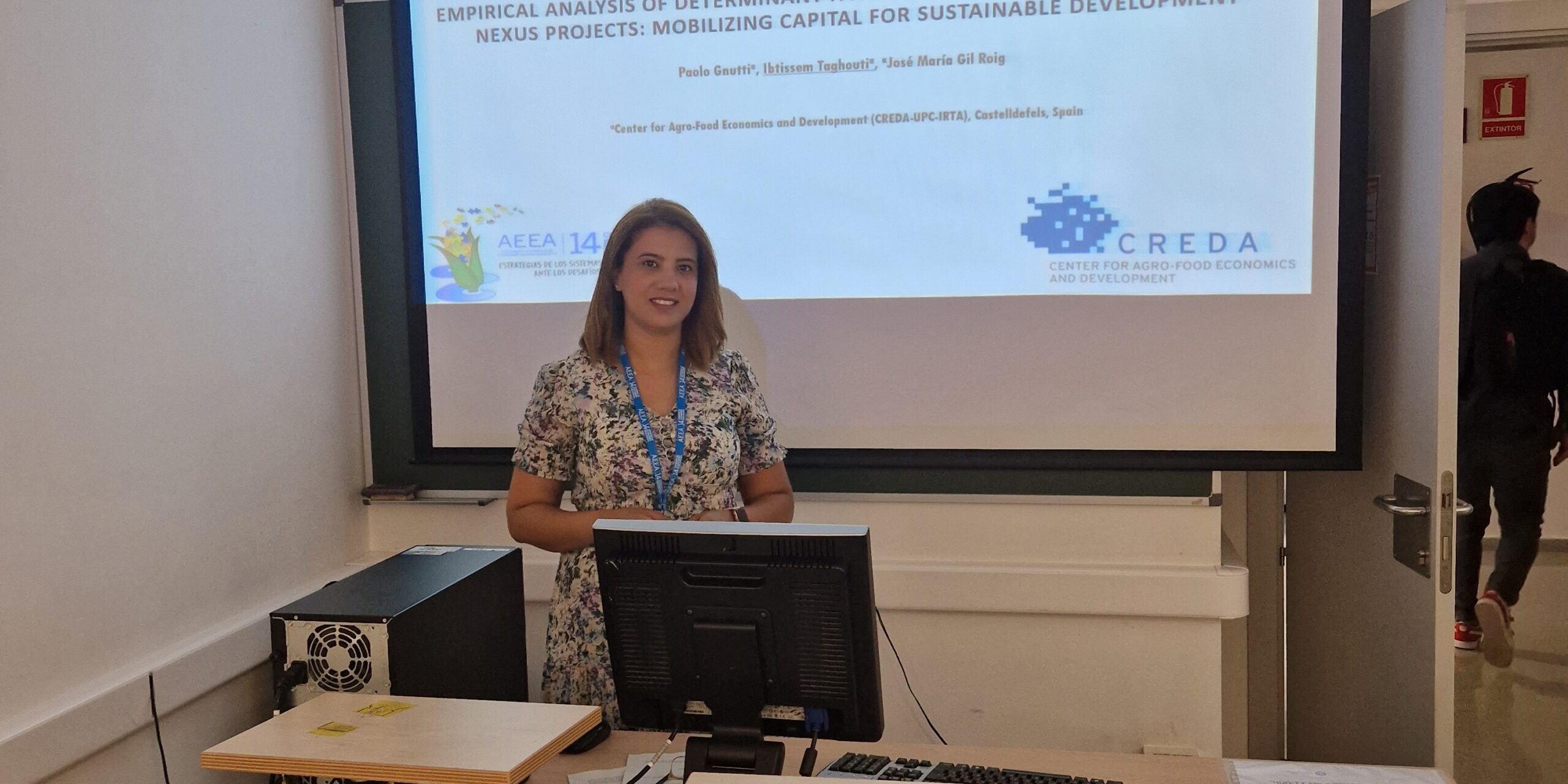XIV AEEA Congress of the Spanish Association of Agri-food Economy (6-8 September 2023, Zaragoza, Spain)
In a world facing mounting challenges in water, energy, food, and ecosystems (WEFE), finding innovative ways to finance projects at the intersection of these critical domains is paramount. On a mission to bridge this gap, Ibtissem Taghouti from the Center for Agro-Food Economics and Development (CREDA) presented her groundbreaking research at the XIV AEEA Congress of the Spanish Association of Agri-food Economy. Taghouti’s research, conducted in collaboration with Paolo Gnutti and Jose Maria Gil Roig, unveils the intricacies of blended finance as a potent tool for mobilizing capital for sustainable development within the WEFE nexus.
Blended Finance: A Catalyst for Change
The concept of blended finance isn’t new, but its potential in the context of the WEFE nexus is still largely untapped. Blended finance involves the strategic mixing of public, private, and philanthropic funds to leverage resources and create a more conducive environment for sustainable development projects. It serves as a bridge between traditional funding sources and projects that align with global sustainability goals.
The WEFE Nexus Challenge
Water, energy, food, and ecosystems are interlinked components of our global system. Changes in one domain can ripple through the others, creating complex challenges that defy simple solutions. Projects that address these challenges, often referred to as WEFE nexus projects, are vital to achieving sustainable development. However, they frequently face financing hurdles due to their cross-sectoral nature and long-term impact.
Empirical Insights from Taghouti’s Research
Taghouti’s research, titled “Empirical Analysis of Determinant Factors in Blended Finance for WEFE Nexus Projects: Mobilizing Capital for Sustainable Development” delves deep into the dynamics of blended finance within the WEFE nexus context. The study provides key empirical insights into the determinants that influence the success of blended finance initiatives and underscores the importance of a comprehensive approach to WEFE nexus projects. Taghouti’s work advocates for a holistic, cross-sectoral, and evidence-based strategy. By addressing the interdependencies within the WEFE nexus and leveraging blended finance strategically, this approach aims to ensure that projects are not only financially viable but also environmentally and socially sustainable.
Conference website: https://economiaagroalimentaria.es/













